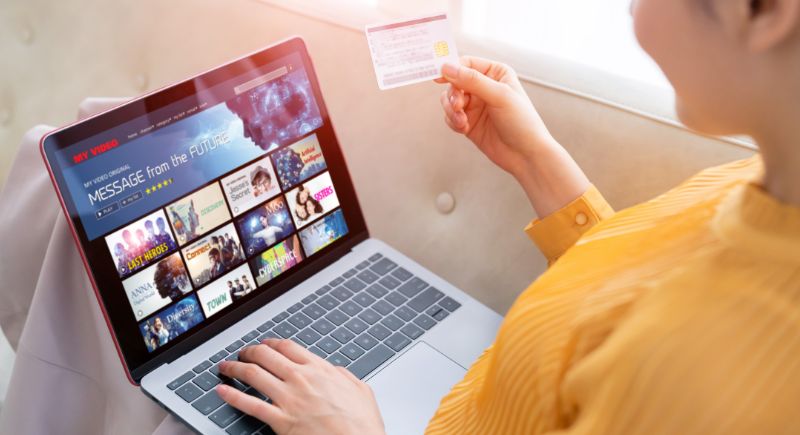The internet feels like a no-rules zone most of the time—scroll here, binge there, post a pic of your dog wearing sunglasses. Harmless fun, right? Well, not always. It turns out that it’s surprisingly easy to break the law while doing the most ordinary things online. And we’re not just talking about shady hackers in dark basements. Regular people (yes, like you) are stumbling into trouble without even knowing it.
Here’s what to watch out for, unless you like explaining yourself to a very unimpressed police officer.
Faking Your Identity Online

Creating a fake name to stay anonymous or setting up a fake profile to prank someone might seem harmless, but legally, it’s not always a joke. Misrepresenting yourself can breach website terms of service, and if the deception causes harm or defamation, it can cross into criminal territory. Even parody accounts have limits: If it’s not painfully obvious that it’s a joke, you could be in deep trouble. Maybe just stick to weird selfies if you’re feeling chaotic.
Stealing Wi-Fi

You’re at home, and your internet’s crawling at the speed of regret. Naturally, you feel tempted by that free Wi-Fi network popping up from the coffee shop down the block. But here’s a catch: Connecting to someone else’s Wi-Fi without asking can land you in legal trouble. Some states treat unauthorized access as theft, and yes, there have been real fines for it.
Forgetting to Report eBay Profits

While selling your old blender or flipping a handful of other goods online for a profit isn’t unlawful on its own, it becomes a problem when you hide the fact from the IRS. Those side-hustle earnings are taxable income; ignoring them could leave you with a tax headache you weren’t expecting.
Downloading Free Music

Downloading music off sketchy sites might feel nostalgic, but it’s still prohibited. Copyright laws protect artists’ work, and grabbing free MP3s without paying for them can put you on the wrong side of those protections. The RIAA has even gone after college students for file-sharing, so it’s best to stick with Spotify or Apple Music these days.
Sharing Your Streaming Passwords

Handing out your Netflix password like candy at Halloween is technically not allowed. In fact, you might be pushing legal limits. According to a federal court ruling, sharing passwords is not permitted under the Computer Fraud and Abuse Act. It’s unlikely you’ll be hauled into court for letting your best friend binge-watch, but technically, you’re not just being generous; you’re breaking the rules.
Watching Content on Unofficial Streaming Sites

If a website looks too good to be true, it definitely is. Streaming the latest blockbuster from a sketchy site is a copyright violation. Not only is it not allowed, but these sites often come loaded with malware and scams. If they’re willing to steal from big studios, stealing your data probably isn’t off-limits either.
Using Random Images You Found Online

Just because an image shows up on Google doesn’t mean it’s free to use. Copyright law protects images, even if they’re floating around the internet. Posting someone else’s work without permission could leave you facing fines or legal action, and no, giving credit usually isn’t enough.
Posting Private Info Without Permission

Sharing someone’s phone number, address, or private photos without their permission is called doxxing, and it’s not just shady; it’s not permitted in many places. Even if you’re just trying to warn people about your shady ex or annoying neighbor, posting their personal info can land you in serious legal trouble. Be mad if you need to, just don’t post receipts.
Cyberbullying

A snarky comment might feel like harmless fun, but consistent harassment crosses the line into cyberbullying, and yes, there are laws against it. In some cases, online harassment can even result in criminal charges. Plus, social platforms now actively report serious cases to law enforcement.
Recording Online Calls Without Telling Everyone

If you love recording Zoom meetings for later, just make sure you have everyone’s consent first. In many states, secretly recording VoIP calls like Zoom, Skype, or WhatsApp without permission could get you into legal trouble faster. You might want to just ask, “Hey, do you mind if I hit record?” next time before you accidentally commit a crime.
Collecting Information About Kids Under 13

Got a website, a shop, or even a random survey you’re running online? Be very careful when gathering info from users under 13. Without parental consent, collecting data from minors is against the Children’s Online Privacy Protection Act and can cost companies millions in fines.
Ripping Audio From YouTube Videos

Ripping a favorite song from a YouTube video for offline listening is tempting. However, YouTube’s terms of service and copyright law say no. Downloading or extracting audio without permission is against regulations, even just for your playlist.